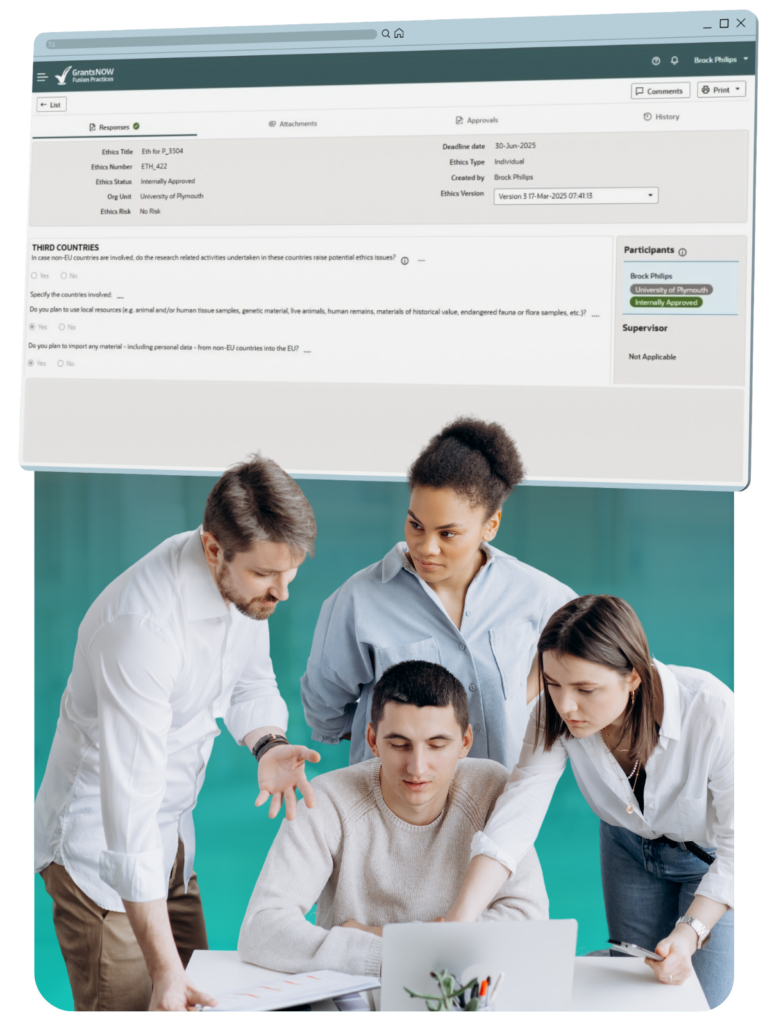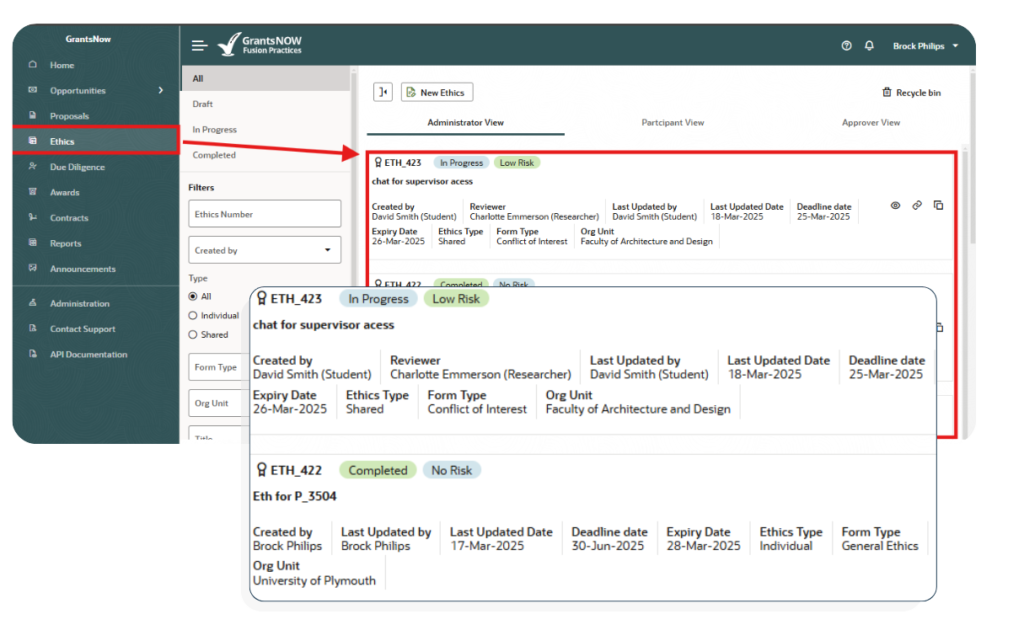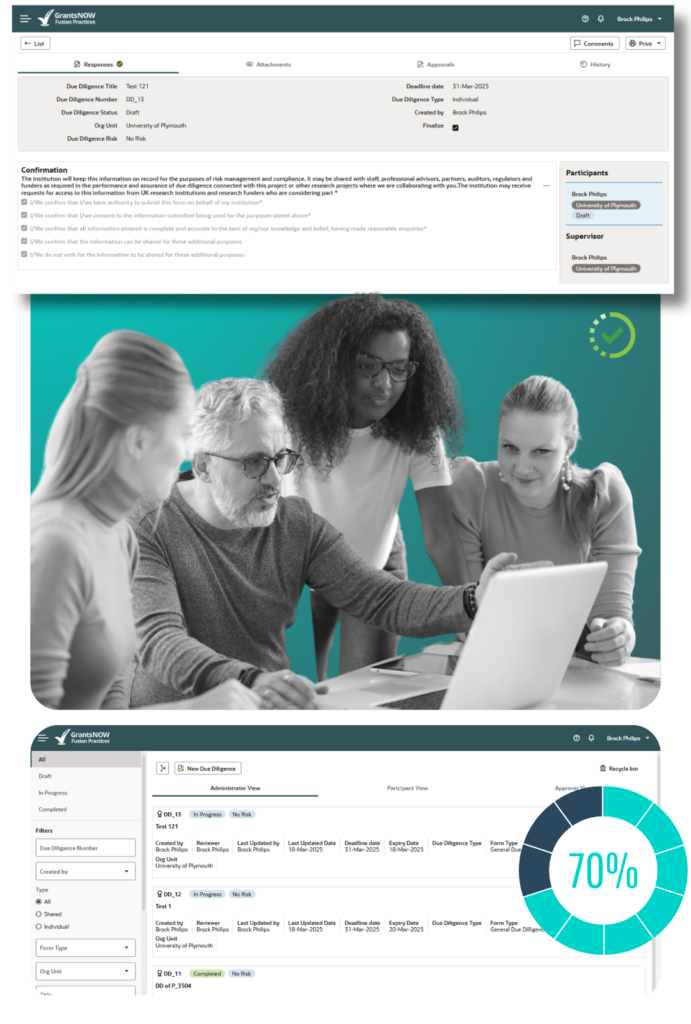Ethics And Due Deligence
GrantsNow offers dynamic form creation and attachment capabilities for due diligence checks. Users can easily create custom confirmation forms and checklists tailored to their specific proposal requirements.



Key features include
Confirmation forms and checklists can be attached at any stage of the proposal process within GrantsNow.
Ethics
GrantsNow provides an easily configurable platform to meet ethical integrity, compliance with regulations, and responsible research practices.

1. Governance & Oversight

2. Ethics Review & Approval Processes

3. Data Protection & Participant Welfare

4. Monitoring, Reporting & Accountability


Due Diligence
Organisational Vetting & Application Governance checks
Use the organisational assessment and vetting workflow to thoroughly review the organisation you are working with. Eg a New Funder or Research Partner.

